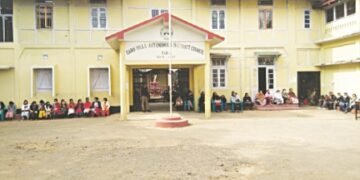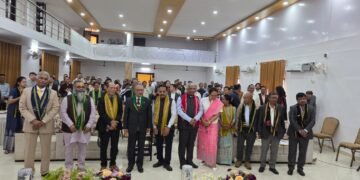A report by real estate consulting firm CBRE South Asia on April 17 stated that by 2050, India is projected to house up to 340 million senior citizens, constituting approximately 17 per cent of the world’s elderly population. It also said that with an increasing number of seniors seeking specialised care and lifestyle options, the demand for senior living facilities has surged significantly in the country in recent years. “In India, the segment is witnessing substantial growth, driven by favourable demographics, rising chronic conditions, and increasing awareness,” the findings showed.
The rise in India’s ageing population will cause a slew of socio-cultural and economic challenges. To understand the phenomenon of ageing in India, the United Nations Population Fund (UNFPA) India, in collaboration with the International Institute for Population Sciences (IIPS) in its ‘India Ageing Report 2023 highlighted that there will be an increase in the number of widows since women generally live longer than men. The report presents a review of the living conditions and welfare of elderly individuals in India and scrutinises the obstacles, opportunities, and institutional responses associated with elderly care in the country.
According to the UNFPA, the number of older women compared to the number of older men will progressively increase with advancing ages from 60 through 80 years and therefore, policies and programmes must especially focus on the special needs of these very old women. Elderly widowed women are often alone with little support and also experience greater incidence of morbidities that are functionally restricting. “Elderly widowed women are often alone with little support and also experience greater incidence of morbidities that are functionally restricting,” the report said.
The increasing number of elderly people in India will have a significant impact on healthcare, the economy, and society. Financial insecurity and the rising costs of healthcare and daily living expenses create stress for those on fixed incomes. Housing and mobility can also become hurdles, among other problems they face. Addressing these challenges and providing support is vital to ensuring the dignity and well-being of the elderly. To deal with this, the government and other groups need to prepare by making plans and policies to ensure the well-being of the elderly now and in the future.
The increasing share of elderly population will mean a relative shrinking of the working population. In addition to this, the ageing population presents a new set of challenges for the country’s healthcare system. Chronic health conditions and the physical and cognitive limitations that come with age are major challenges for the elderly population. This may require realigning primary healthcare services to better care for the new diseases among the target population. If the country becomes old before it is in a position to support both its young and the old, it can lead to serious economic difficulties and social disruptions.


























